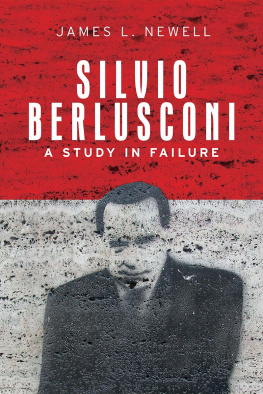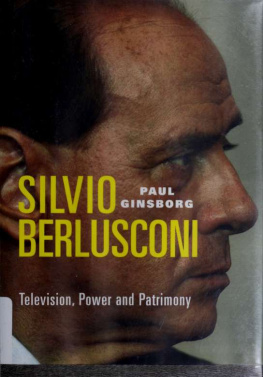Alberto Moravia
Conjugal Love
FIRST of all I wish to speak of my wife. Loving, apart from many other things, means taking a delight in looking at and watching the loved one. Taking a delight, that is to say, in contemplating not merely the beauties but also the defects, whether they be few or many, of that person. From the very first days of our married life, I found an inestimable pleasure in looking at Leda (that is her name), and in studying even the most insignificant and fleeting movements and expressions of her face and body. My wife, at the time we were married (later, after she had borne three children, certain of her characteristics were, I do not say changed, but to some extent modified), was just over thirty years old. She was, if not exactly tall, above the middle height; and her face and figure were both very beautiful, though far from perfect. Her long, thin face had a withdrawn, dazed, almost obliterated look, like that of a classical deity in some old picture of mediocre quality in which the vagueness of the painting is increased by the patina of age. This strange look of intangible beauty which, like a gleam of sunshine on a wall or the shadow of a cloud passing over the sea, might vanish at any moment, came without doubt partly from her hair, which was of a metallic fairness and always a little untidy, with long trailing locks that seemed to suggest a flutter of fear or flight, and partly from her blue eyes, which were enormous and slightly slanting, with dilated, glistening pupils whose troubled, evasive glance suggested, as did her hair, a state of mind both frightened and shy. Her nose was large and straight and nobly formed, her wide red mouth unusually sinuous in shape, and with a look of surly, heavy sensuality, the lower lip curving deeply back over a chin which was too small. It was an irregular face, but nevertheless a very beautiful one, with, as I have already said, an intangible beauty which at certain moments and in certain circumstances, as I shall explain later, seemed to dissolve and disappear. The same might be said of her body. From the waist upwards she was as slim and delicate as a young girl; on the other hand her hips, her belly, her legs, were solid, strong, adult, full of muscular energy and swagger. But this lack of harmony, like the lack of harmony in her face, was neutralized by the beauty which enveloped her from head to foot, in a halo of perfection, as though it were an impalpable attendant aura or a mysteriously transfiguring light. Strange to say, sometimes, as I looked at her, I actually thought of her as a person of classical form and features, without defects, all harmony and serenity and symmetry: to such an extent did this beauty, which for want of other words I am compelled to call spiritual, beguile and seduce me. But there were moments when the golden veil was torn, and then not only were the many irregularities revealed to me but I was also witness of a painful transformation of her whole personality.
I made this discovery during the first days of our married life and, for a moment, I had almost the feeling of having been deceived, like a man who, having married for money, discovers after the wedding that his wife is poor. For, at times, my wife's whole face would be twisted into a heavy, mute grimace in which fear, anguish and waywardness all seemed to be expressed, and, at the same time, an unwilling sexual attraction. This grimace would cause the natural irregularity of her features to leap to the eye, so to speak, in a most violent manner, giving her whole face the repellent appearance of a grotesque mask in which, for the sake of a particular comic quality, partly obscene and partly painful, certain features had been deliberately exaggerated, to the point of caricature: the mouth especially, and also the two lines at the sides of the mouth, and the nostrils and the eyes. My wife had the habit of painting her lips heavily, with scarlet lipstick; and also, being pale, she used to put rouge on her cheeks. These artificial colours were not noticeable when the expression of her face was calm, since they harmonized with the colour of her eyes, of her hair and complexion. But when she grimaced, they stood out, crude and flaming, and her face, which a moment before had been so serene, so luminous, so classically beautiful, brought to mind the ridiculous highly-coloured features of a carnival mask. And to this there was added that touch of obscenity that such physical distortions acquire from the softness and warmth of living flesh.
Similarly her body, like her face, had a way of putting to flight the enchanted air of beauty, of performing ugly contortions. She would crumple up completely, as though in fear or disgust; but at the same time, like a certain kind of dancer or mime whose aim is to excite her audience, while her arms and legs were thrust forward in an attitude of defence or aversion, her body would bend backwards in an inviting, provoking posture. She would indeed appear to be thrusting away some imaginary danger, and yet, at the same moment, to be indicating by that vehement twisting of her hips that the danger or assault was not unwelcome. It was a graceless attitude and, accompanied as it sometimes was by the facial grimace, it made one doubt, almost, whether one was still face to face with the same person who, a moment before, had been so composed, so serene, so unspeakably lovely.
I have said that loving means loving everything about the beloved person, the defects, if there are any, just as much as the beauties. These grimaces, these distortions, although extremely ugly, were soon just as dear to me as the beauty, the harmony, the serenity of the better moments. But loving sometimes also means not understanding; for if it is true that there is one form of love that implies full comprehension, it is also true that there is another more passionate form that makes one blind with regard to the loved one. I was not exactly blind; but I lacked the mental lucidity of a tested, long-standing love. I knew that my wife, in certain circumstances, became ugly and graceless; this seemed to me a curious fact and, like everything else about her, lovable; but beyond the establishment of the fact I was neither able, nor did I wish, to go.
I ought, at this point, to say that the grimace and the distortion occurred very rarely and never at intimate moments in our relationship. I do not remember any word or gesture of mine ever producing that strange transmutation of her face into a mask or of her body into a marionette. On the contrary, in our moments of love making she seemed to achieve the highest degree of that unbelievable, unspeakable beauty of hers. At such times the dilated, moist pupils of her great eyes held a troubled appeal that was gentle and sweet and more expressive than any speech; her mouth seemed to proclaim, through the sensuality and the sinuosity of her lips, a capricious, intelligent kindness all its own; and her whole face welcomed my gaze like a mysterious but reassuring mirror to which the fair, tousled hair made a worthy frame. Her body too seemed then to fall into its loveliest shape, lying there innocent and languid, without strength and without shame, like a promised land that displayed itself to the first glance all open and golden, with its fields and its rivers, its hills and its valleys, to the furthest horizon. The grimace and the distortions, on the other hand, were produced by the most unexpected and unimportant circumstances; it will be enough if I mention just a few of them. My wife has always been a great reader of detective stories. I noticed that, when she reached the point where the plot became most enthralling and most frightening, her face would gradually twist itself into that grimace; and it would not disappear again until the end of the passage that had induced it. My wife was likewise very fond of gambling. I was with her at Campione, at Monte Carlo, at San Remo: and every single time, after she had made her stake, while the wheel was going round and the little ball jumping from number to number, her face would take on that ugly grimace. Finally, even the act of inserting a piece of thread into the eye of a needle sufficed to make her grimace; or a child running along the edge of a brook at the risk of falling in; or even a drop of cold water down her back.










